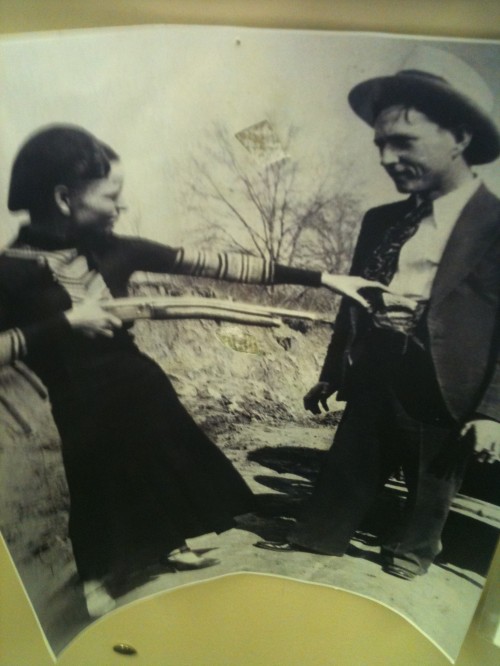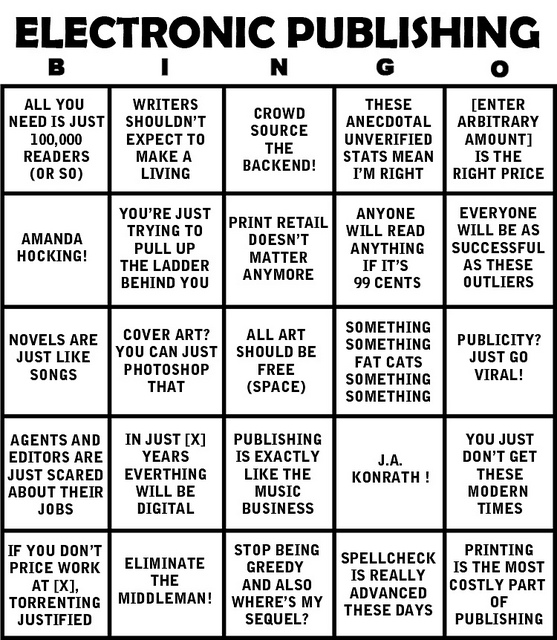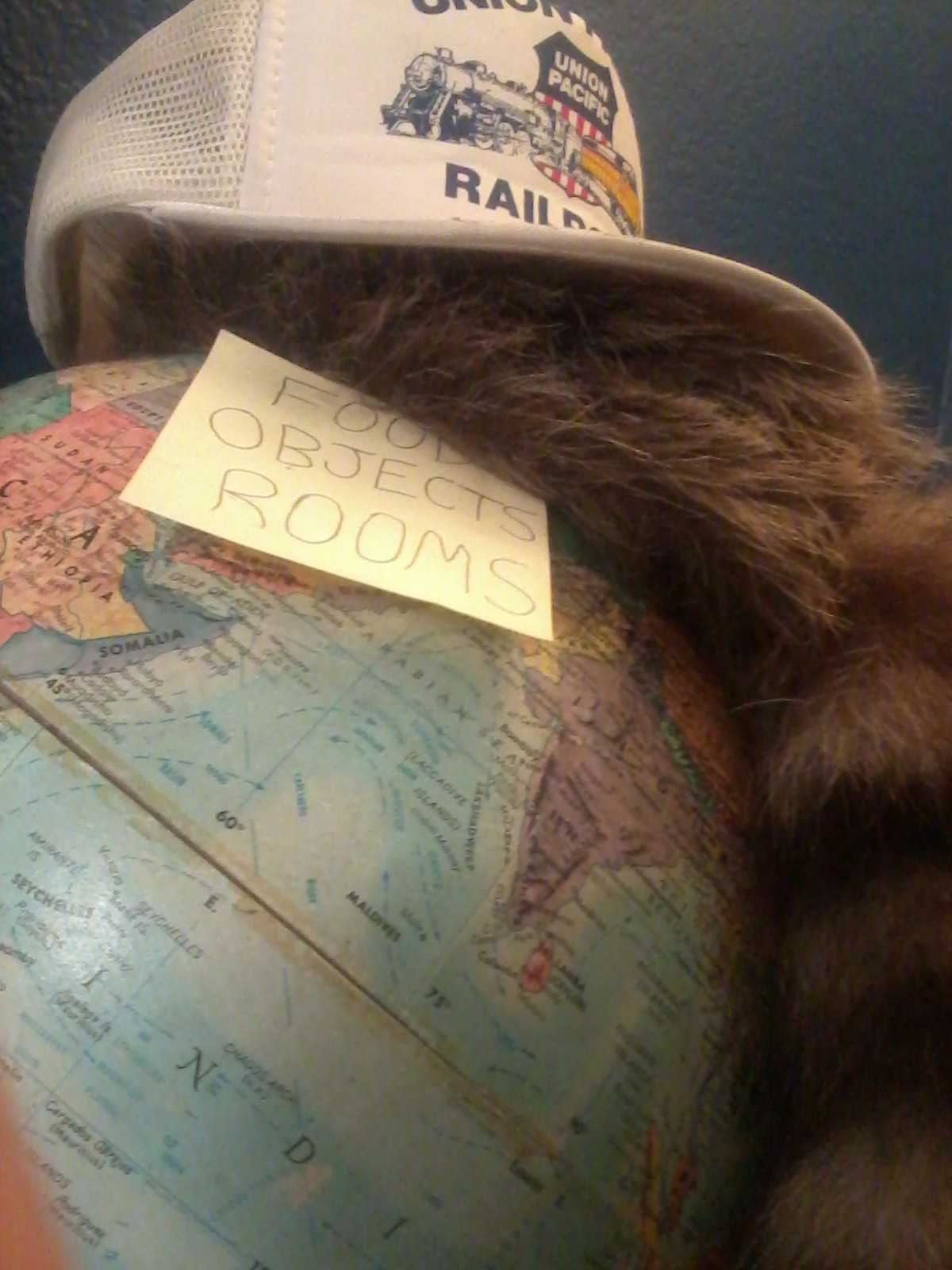I’m not racist: I love white people
In their song “Hahahaha jk,” Das Racist proclaims, “We’re not racist: We love white people!”
[Sorry, I wanted to find a video of a live performance, but YouTube is sometimes inadequate. At least you can listen the song?]
I love Das Racist. They are smart and clever and funny and their lyrics are just plain fantastic. But that one line, it sticks with me. Partially because it’s true, partially because it speaks to racial issues in a very pointed and problematic way.
Imagine if Eminem had a lyric like: I’m not racist, I love black people. How many people would be pissed? (Come on. It’s not like we don’t all know it’s true!) But because Das Racist has at their easy disposal the “race” card, it’s not only funny, it comes to embody a certain degree of truth.
As a woman of color, I can say: I’m not racist, I love white people. No one would call me racist, at least not to my face.
biochemistry made 11 cats
1. Cathy Day said, “Why not write in the classroom and workshop outside the classroom?” (It’s about time to write a traditional-workshop-structure-is-dead post, but not now. Later.)
1. After 130 years they dig up a Robert Louis Stevenson novel. (No, Tess Gallagher did not find it in a sock drawer.) Stevenson abandoned it. So people ‘finish’ it for the dead author, publish it. Same old story.
1. Best books on Nuclear accidents/fears/history.
1. Tablet & Pen: Literary Landscapes from the Modern Middle East.
11. Visual artists rarely feel the need to explain the artifact. Writers often do. Why is that?
Electronic Publishing Bingo
This fantastic Bingo Card was created by John Scalzi.
Papermongering

Pulp. Fibrous, cellulose pulp. Grass-paper, rag-paper, rag-and-bone, paperweight: in the second century Cai Lun developed a paper process. Tiny little papermills of the mind. Cogs and wheels of papermaking, pulping, rod-and-doweling. And then a lunatic of the senses, the world becomes that, is that, mired in that. Words. Cultural disease, newsprint, papyrus bundles. In the chemical pulping, all our senses. In the mechanical pulping, all trees like a billion Christmases. A cooking process. Waste fortifies chalk and china clay. Watermarks destroy the day and deckle its edges.
We’re all of an age that recycling is second nature. We use the backs of receipts for listmaking—if we use paper at all—before we toss paper into the recycle bin. We read on screen. We mostly do paperless banking, paperless billing, paperless letter writing. We practice efficiency. We download 572 books onto our little reading devices and plow through them candily.
But I’ll tell you what. I got the proof copy of my book in the mail yesterday, and there is nothing in the world like seeing your book in all its pulpy flesh. It is a real object, a hallelujah of paper and ink. It’s a book, which is a thing. I can slip it into my purse and feel it there. It’s the synecdoche of language-as-artifact, a receptacle for artfulness. I wouldn’t be nearly as happy to have a book published in the ether. Look! Here’s my book in the air! No way. I want to see it, feel it, bruise it, lick its spine.
The book industry could stand to cut down its waste, as all industries could. We’re wasteful motherfuckers with our overstocks and our throw aways—even the zoos breed more animals than they can use and sell them to more wasteful idiots who think having exotic pets is fun. Have you seen how much meat your big box grocer throws away weekly? The machine is unwieldy and alive all around us.
But trim the fat. Trim the fat. Don’t throw away the whole goddamn bird.
SMILES YOU CAN’T STOP: Win a Free Book
 So Ken Baumann (author of the forthcoming Solip from Tyrant Books in 2012; congrats Ken!) accidentally bought two copies of Jason Bredle’s heart-sifting and twisting Smiles of the Unstoppable. When I offered to refund the extra money, he generously suggested I give the extra copy away on HTMLGIANT, which brings us to the pumpkin below this paragraph. See, I wanted to do a caption contest where I posted a picture of Ken smiling, but for some reason I found this picture of a pumpkin, which was actually even better than a picture of Ken getting Lasik surgery.
So Ken Baumann (author of the forthcoming Solip from Tyrant Books in 2012; congrats Ken!) accidentally bought two copies of Jason Bredle’s heart-sifting and twisting Smiles of the Unstoppable. When I offered to refund the extra money, he generously suggested I give the extra copy away on HTMLGIANT, which brings us to the pumpkin below this paragraph. See, I wanted to do a caption contest where I posted a picture of Ken smiling, but for some reason I found this picture of a pumpkin, which was actually even better than a picture of Ken getting Lasik surgery.
 Here’s the contest: Post a caption to this pumpkin smile picture in the comments. Best 2 captions win copies of Smiles of the Unstoppable. Deadline: next Friday, March 25th. Very easy. Bonus points if Ken/Jason are somehow involved in an adventure with the pumpkin. See the picture, amplify your best/Jimmy Cheniest wit, and win some terrific poetry. Also you can go see Jason Bredle read at the Tucson Lit Press Fest on the 26th of March. So my best suggestion is to win this book, read some poems from it to your rich lover, and have your rich lover swoon so hard they buy you a ticket to Tucson. Duh. Very easy. Ready set go. If you need further convincing, read Jason’s poem “Moby Dick” below the jump, originally published at Ken’s No Posit. READ MORE >
Here’s the contest: Post a caption to this pumpkin smile picture in the comments. Best 2 captions win copies of Smiles of the Unstoppable. Deadline: next Friday, March 25th. Very easy. Bonus points if Ken/Jason are somehow involved in an adventure with the pumpkin. See the picture, amplify your best/Jimmy Cheniest wit, and win some terrific poetry. Also you can go see Jason Bredle read at the Tucson Lit Press Fest on the 26th of March. So my best suggestion is to win this book, read some poems from it to your rich lover, and have your rich lover swoon so hard they buy you a ticket to Tucson. Duh. Very easy. Ready set go. If you need further convincing, read Jason’s poem “Moby Dick” below the jump, originally published at Ken’s No Posit. READ MORE >
At The Faster Times, Lily Ladewig wrote a review of the Chapbook Festival. Good peoples man.
Interview Roundup, Eleventh and Final Part: Davis, Gimenez-Smith, Dixon, Irving, Borges
 “When you’re not wearing your glasses, all you can see is what is close to you. You can’t see the context. You can’t see the rest of the room or across the street. I also didn’t wear my glasses some of the time out of vanity. I have thought about this because I notice it all the time—that in reading students’ work or discussing other peoples’ work, I don’t have much trouble focusing on detail, word to word, sentence to sentence, but I have to make a major effort to step back from a piece of writing and summarize what its themes are. As a child I resisted knowing much about the outside world—politics, international situations. In college I had only a very vague sense of facts, of distances. I remember being asked in some psychological test how far it is from New York to London, and even though I’d been to Europe at least twice already, I said about 15,000 miles. I was terrible at current events in school. I did well on one assignment which was to take a newspaper article and point out where the reporter was showing bias. Again, that was a close textual analysis.” – Lydia Davis in BOMB
“When you’re not wearing your glasses, all you can see is what is close to you. You can’t see the context. You can’t see the rest of the room or across the street. I also didn’t wear my glasses some of the time out of vanity. I have thought about this because I notice it all the time—that in reading students’ work or discussing other peoples’ work, I don’t have much trouble focusing on detail, word to word, sentence to sentence, but I have to make a major effort to step back from a piece of writing and summarize what its themes are. As a child I resisted knowing much about the outside world—politics, international situations. In college I had only a very vague sense of facts, of distances. I remember being asked in some psychological test how far it is from New York to London, and even though I’d been to Europe at least twice already, I said about 15,000 miles. I was terrible at current events in school. I did well on one assignment which was to take a newspaper article and point out where the reporter was showing bias. Again, that was a close textual analysis.” – Lydia Davis in BOMB
 “I am enthralled by syntax, by the sinews of the sentence. Often my absorption in the line leads to language becoming pure sound for me, something like murmur, but of course the printed word itself and at least the shadow of its meaning always remain. I love Wittgenstein’s take on this stuff, the way he seems so utterly perplexed by it, which I think is the correct attitude to take when it comes to thinking about the relationship between the look of the word on the page and the sound of the word in your head or your ear. There’s a line somewhere in the Investigations: “Remember that the look of a word is familiar to us in the same kind of way as its sound.” I suppose “Tree Tree Tree” speaks to this look–sound problematic in some way.
“I am enthralled by syntax, by the sinews of the sentence. Often my absorption in the line leads to language becoming pure sound for me, something like murmur, but of course the printed word itself and at least the shadow of its meaning always remain. I love Wittgenstein’s take on this stuff, the way he seems so utterly perplexed by it, which I think is the correct attitude to take when it comes to thinking about the relationship between the look of the word on the page and the sound of the word in your head or your ear. There’s a line somewhere in the Investigations: “Remember that the look of a word is familiar to us in the same kind of way as its sound.” I suppose “Tree Tree Tree” speaks to this look–sound problematic in some way.
My first language was Spanish. Writing in a language other than that with which I grew up, with which I learned to think and feel, has surely had some bearing on my relationship to writing. I love finding words and sounds from other languages buried in English; I prefer to imagine discrete languages as continuous, like adjoining rooms connected by a common door — sound. When I revise a poem, I’m thinking primarily about sound, syllables as phonemic puzzle pieces. I wrote “Tree Tree Tree” in graduate school; I think it was exhibitive of my coming to this awareness of new sonic possibilities in my writing.” – Carmen Gimenez-Smith in La Bloga
 “I write about sex the way it is. I try not to be salacious. I, in fact, go out of my way not to be. I feel the best way to handle sex is naturally. I don’t write to get anyone excited by my depictions of sex. But I don’t want to write something other than the way it happened. Lots of times I just say the couple did it. Other times, because of what’s happening in the sex act that reveals plot and character, it’s necessary to go in to greater detail. Sex has usually been an important part of most of the characters in my fiction, but just one part.” – Stephen Dixon in Bookslut
“I write about sex the way it is. I try not to be salacious. I, in fact, go out of my way not to be. I feel the best way to handle sex is naturally. I don’t write to get anyone excited by my depictions of sex. But I don’t want to write something other than the way it happened. Lots of times I just say the couple did it. Other times, because of what’s happening in the sex act that reveals plot and character, it’s necessary to go in to greater detail. Sex has usually been an important part of most of the characters in my fiction, but just one part.” – Stephen Dixon in Bookslut
 “When people ask me what my novels are “about”, the word “about” gives me the chills. I believe that, in any novel of mine, the principal objective is the construction of the whole. The excitement for me is the architect’s excitement. That little road map I make, making my way backwards to where I think the story should begin, that little sketch, the skeleton of the novel, the scaffolding of the building I’ve not yet made, is nothing but an outline of the action of the story. There are no details. The details emerge as the sentences do. I sometimes think that what I do as a writer is make a kind of colouring book, where all the lines are there and then you put in the colour. I never start writing the novel, consecutively telling the story, until I’ve gone from that last sentence to the first. I now have those two poles and I know all the action. From the moment I start writing, I don’t have to think about what’s going to happen, and maybe this is why Thomas Hardy is almost as important to me as Dickens. I like the writing in Dickens far better than I like the writing in Hardy, especially the dialogue. For someone like me, who knows the fate of all his characters, how wonderful it is that Hardy believed, as he surely did, in the predetermination of all his characters.” – John Irving in New Statesman
“When people ask me what my novels are “about”, the word “about” gives me the chills. I believe that, in any novel of mine, the principal objective is the construction of the whole. The excitement for me is the architect’s excitement. That little road map I make, making my way backwards to where I think the story should begin, that little sketch, the skeleton of the novel, the scaffolding of the building I’ve not yet made, is nothing but an outline of the action of the story. There are no details. The details emerge as the sentences do. I sometimes think that what I do as a writer is make a kind of colouring book, where all the lines are there and then you put in the colour. I never start writing the novel, consecutively telling the story, until I’ve gone from that last sentence to the first. I now have those two poles and I know all the action. From the moment I start writing, I don’t have to think about what’s going to happen, and maybe this is why Thomas Hardy is almost as important to me as Dickens. I like the writing in Dickens far better than I like the writing in Hardy, especially the dialogue. For someone like me, who knows the fate of all his characters, how wonderful it is that Hardy believed, as he surely did, in the predetermination of all his characters.” – John Irving in New Statesman
 “Ah, Middlemarch! Yes, of course! You mean the whole universe is linked together; everything linked. Well that’s one of the reasons the Stoic philosophers had for believing in omens. There’s a paper, a very interesting paper, as all of his are, by De Quincey on modern superstition, and there he gives the Stoic theory. The idea is that since the whole universe is one living thing, then there is a kinship between things that seem far off. For example, if thirteen people dine together, one of them is bound to die within the year. Not merely because of Jesus Christ and the Last Supper, but also because all things are bound together. He said—I wonder how that sentence runs—that everything in the world is a secret glass or secret mirror of the universe.” – Jorge Luis Borges in the Paris Review
“Ah, Middlemarch! Yes, of course! You mean the whole universe is linked together; everything linked. Well that’s one of the reasons the Stoic philosophers had for believing in omens. There’s a paper, a very interesting paper, as all of his are, by De Quincey on modern superstition, and there he gives the Stoic theory. The idea is that since the whole universe is one living thing, then there is a kinship between things that seem far off. For example, if thirteen people dine together, one of them is bound to die within the year. Not merely because of Jesus Christ and the Last Supper, but also because all things are bound together. He said—I wonder how that sentence runs—that everything in the world is a secret glass or secret mirror of the universe.” – Jorge Luis Borges in the Paris Review
Electric Literature made Broadcastr, an app & site that lets you record stories and pin them to places. Start making it weird.



